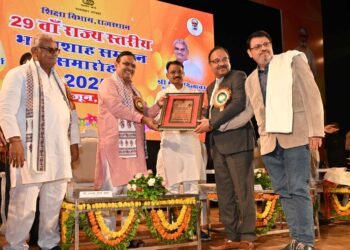The Indian Premier League has become far more than just one of the wealthiest domestic T20 cricket tournaments in the world. The Board of Control for Cricket in India and other organisers of the IPL have responsibly taken the opportunity to turn it into one of the ‘greenest’ and most environmentally sustainable tournaments on the planet.
One of the most recent examples of this is the BCCI’s partnership with United Nations Environment. The agreement, which started in 2018, effectively affords the Indian board funds and resources to implement ‘greening operations’ at the many venues used for the tournament.
From the Feroz Shah Kotla in Delhi and Wankhede Stadium in Mumbai to Eden Gardens in Kolkata and the M Chinnaswamy Stadium in Bengaluru, the BCCI actively encourages fans to do away with single-use plastic.
“This is a major step in spreading the message of environmental conservation. We will help make cricket green and sensitise spectators towards minimising waste generation during matches,” said BCCI acting secretary Amitabh Choudhary at the time.
UN Environment executive director Erik Solheim concurred, “The environment and sports are more closely connected than people think. If we don’t have a healthy environment, then sports will not thrive. We will use the power of cricket to inspire action for the environment and this planet.”
The Chennai Super Kings, Mumbai Indians, Rajasthan Royals, Kings XI Punjab, Royal Challengers Bangalore, Kolkata Knight Riders, Delhi Capitals and Sunrisers Hyderabad all take responsibility for their own ‘greening’ initiatives, too.
These initiatives, which have consistently sat well with fans of the franchise, have put the Delhi Capitals among the most popular and lucrative brands in the IPL – on and off the field.
Even in 2020, when the tournament had to relocate from India to the United Arab Emirates, the Delhi franchise and tournament – as a whole – continued their mission for environmental sustainability. This showed in the mirrored efforts of the Emirates Cricket Board, too, as venues in Dubai, Sharjah and Abu Dhabi aligned with the BCCI’s ‘green’ ambition.
Despite the relocation and related disruptions, including a six-month postponement, the IPL continued to deliver lucrative revenue outcomes this year. It’s estimated brand is currently in the region of $7 billion, and it’s hugely popular for betting in India. Also, there are many websites that offer betting tips for the latest cricket matches in the IPL. They cover the tournament in great depth, with overall tournament markets and 100s of events for individual matches.
Perhaps the most impressive, though, is the Capitals’ work with Coca-Cola India and the Ramky Waste Management Group. Their collective crackdown amid an exemplary ‘zero waste’ policy is admirable.
“Every year, there is a growing realisation to reduce waste that goes into the landfills. Through this initiative, we’re trying to spread awareness about the importance of judicious waste disposal and waste management,” said then-Delhi franchise chief executive officer Hemant Dua.
Dua has since moved on, but the sustainability projects initiated by him and others a few years ago continue to yield great results today.
The IPL remains the most prominent, richest and most popular domestic T20 tournament around the world. With its record television viewership numbers and other hefty revenue digits, it continues to fly head and shoulders above other pretenders such as the Big Bash League in Australia, Pakistan Super League, Bangladesh Premier League, Mzansi Super League in South Africa, T20 Blast in the United Kingdom, Caribbean Premier League in the West Indies and, most recently, the inaugural Lanka Premier League in Hambantota.
From its humble but promising beginnings in 2008 and its momentary move to South Africa in 2009 and the UAE in 2014 and 2020, the IPL has epitomised succeeding – on and off the field – despite significant political, environmental and cricketing challenges.




















